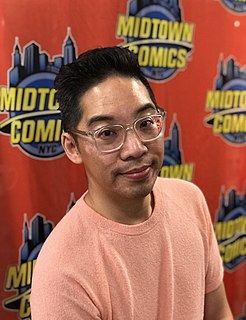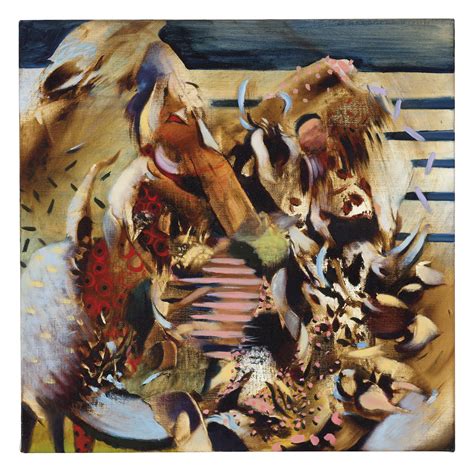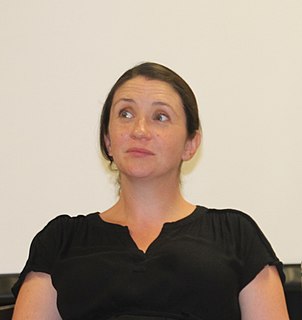A Quote by Frederick Busch
In a way, I see my fiction as having moved in that direction - and the characters as dealing simultaneously with their personal history and with the present in which they are trying to make their way. So that the books are simultaneously about public and interior events. And I am having a great time getting confused and crazed writing about them.
Related Quotes
It starts with the writing. We have to think of all these characters - we have to treat them all equally. We have to think of them as having an interior life and having motivations. When I'm drawing female characters, I'm looking for that. I'm looking for subtext. I'm looking for ways to make the reader relate to them in a way that goes beyond the pure aesthetic value. You know, just drawing an attractive woman really gets kind of boring after a while.
The way the world works now, the way the rules of engagement operate, you can't claim to make sense out of the exterior without booking voyages into the interior. Think about it: How can you understand 'it' if you haven't made any effort to understand 'you'? Because what you're really doing is establishing a living, electrical, vital, energetic connection between it and you. You're creating both of them, simultaneously. A lot like quantum physics.
The public has moved beyond politicians. For example, I'm not worried about them repealing protections for the LGBT community, because the public is beyond that. I'm not worried about them being able to change the way in which we have reached out and provided many more opportunities for women. And I - but here's what does concern me. What concerns me is that they will make some judgments in the foreign policy area, without having thought it through that may cause a lot of problems.
Some of my books sort of have a provocative take. Sometimes you find interesting things about characters that show they weren't necessarily the way people usually see them. It can make for lively conversations, but that's great. Spark a little controversy, get people to think about it. That's what it's all about.
There are a number of things that I'm trying to get into the books. There's a meta-fictional aspect, if I may use that pretentious word, to writing anything. You're writing in the shadow of all the people that have gone before and, in a way, you're having a dialogue with them. As someone who's read J.R. Tolkien and Robert E. Howard and all the great fantasists before, this is almost my answer to them.
The hardest part about writing fiction is finding long stretches of time to do it: for me, this means writing mostly on Saturdays and Sundays. But I am always thinking about my characters, jotting down ideas in stolen moments and hoping I'll be able to make sense of them when the weekend rolls around.
...memory is fragile and the space of a single life is brief, passing so quickly that we never get a chance to see the relationship between events; we cannot gauge the consequences of our acts, and we believe in the fiction of past, present, and future, but it may also be true that everything happens simultaneously.
Writing fiction is very different to writing non-fiction. I love writing novels, but on history books, like my biographies of Stalin or Catherine the Great or Jerusalem, I spend endless hours doing vast amounts of research. But it ends up being based on the same principle as all writing about people: and that is curiosity!
I've been writing American history for a long time, and I've had a hard time finding strong, interesting female characters. There are women, of course, in American history, but they're hard to write about because they don't leave much of a historical trace, and they're not usually involved in high-profile public events.




































